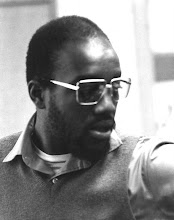
Jewish leaders and community groups criticised Pope Benedict XVI strongly yesterday after the head of the Roman Catholic Church formally removed restrictions on celebrating an old form of the Latin Mass which includes prayers calling for the Jews to "be delivered from their darkness" and converted to Catholicism.
In a highly controversial concession to traditionalist Catholics, Pope Benedict said he had decided to allow parish priests to celebrate the Latin Tridentine Mass if a "stable group of faithful" request it.
But he stressed that he was in no way undoing the reforms of the 1960s Second Vatican Council which allowed the Mass to be said in vernacular languages for the first time.
"What earlier generations held as sacred remains sacred and great for us too, and it cannot be all of a sudden entirely forbidden or even considered harmful," Benedict wrote.
But the older rite's prayers calling on God to "lift the veil from the eyes" of the Jews and end "the blindness of that people so that they may acknowledge the light of your truth, which is Christ" have sparked outrage.
Yesterday the Anti-Defamation League, the American-based Jewish advocacy group, called the papal decision a "body blow to Catholic-Jewish relations".
"We are extremely disappointed and deeply offended that nearly 40 years after the Vatican rightly removed insulting anti-Jewish language from the Good Friday Mass, it would now permit Catholics to utter such hurtful and insulting words by praying for Jews to be converted," said Abraham Foxman, the group's national director, in Rome.
"It is the wrong decision at the wrong time. It appears the Vatican has chosen to satisfy a right-wing faction in the church that rejects change and reconciliation."
Some bishops in France as well as liberal clergy and Catholics elsewhere have expressed concerns that allowing freer use of the Tridentine liturgy would imply a negation of Vatican II, the 1962-65 meetings that modernised the Roman Catholic Church.
They also feared it could create divisions in parishes, since two different liturgies would be celebrated.
The liberal French Catholic magazine Temoignage Chretien published an editorial in Latin explaining that it was not concerned about the language in which the Mass was celebrated but by "the view of the outside world held by most supporters of the traditional rite ... of a church that sees itself as the sole holder of the truth. Forty years after the Second Vatican Council, this stand is untenable".
Benedict has told bishops that such fears are "unfounded" as the Mass celebrated in the vernacular remained the "normal" form while the older version was an "extraordinary" one that would probably be sought by only relatively few Catholics.
The Vatican spokesman, the Rev Federico Lombardi, said the new rules did not "impose any return to the past, nor any weakening of the authority of the council, nor the authority and responsibility of bishops".
Benedict was acting in a bid to reach out to the followers of a French ultra-traditionalist, the late Archbishop Marcel Lefebvre, who split with the Vatican over the introduction of the new Mass and other Vatican II reforms. He was excommunicated in 1988 after he consecrated four bishops without Rome's consent. The bishops were excommunicated as well.
The group has expressed rejoicing and thanked Benedict for the move.
In one small village in western France, a church was recently occupied by Catholic traditionalists demanding a Mass in Latin.
A new priest, replacing a conservative who led the parish for 40 years, had been ordered by the local bishop to end the unauthorised but previously tolerated older rites.
- OBSERVER

No comments:
Post a Comment